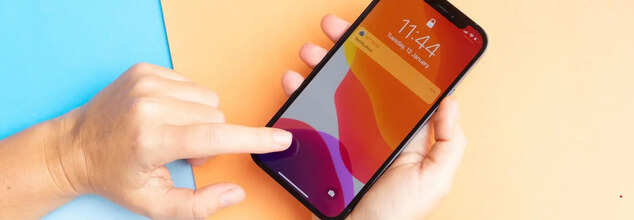
Credit: Canva
This Simple Smartphone Hack Could Help Fight Depression
Forget the diet and exercise regime, scientists now claim that being happier and healthier is literally in the palm of your hands. A new study published in PNAS Nexus discovered that people spend an average of three to five hours on their smartphones every day. This is even worse for younger adults who spend over six to seven hours. However, all this doomscrolling and social media envy makes us miserable. The good news is that you don't have to quit these sites forever to feel better. A little cut-off from the internet could work wonders for your mental health.
During the study, researchers asked 467 participants to install an app that blocked all of their mobile internet access for two weeks and found that those who did, reported a significant boost to mental health, focus and well-being. The participants, whose average age was 32, could still access the internet on their computers at work, home or school — and they were able to hop back online on their phones once the experiment was over, but it seems this one small change produced massive results.
Quitting the smartphone worked better than antidepressants
Almost three-quarters of participants (71%) reported better mental health, with the average improvement in depression symptoms even greater than what’s been seen in research on antidepressants. And with attention span, researchers noted the move seemed to reverse 10 years of cognitive decline related to ageing. "Smartphones have drastically changed our lives and behaviours over the past 15 years, but our basic human psychology remains the same," said Adrian Ward, a marketing professor at the University of Texas McCombs School of Business and lead study author. "Our big question was, are we adapted to deal with a constant connection to everything all the time? The data suggest that we are not," he added.
Smartphone Addiction And Impact On Skin
One important thing to note was that not all smartphone users were able to keep up with the no internet policy on their phones. This indicates the addiction we have to our smartphones. Another byproduct of smartphone addiction is the exposure to blue light. Almost everyone spends hours on their smartphones. It is not surprising to find kids glued to cartoon videos and adults doomscrolling social media. However, research has found that the blue light emitted by electronic devices accelerates the process of ageing.
Blue light emitted by mobile phones significantly affects the skin, particularly in the middle of the face. This exposure can lead to dry skin, even for those with naturally oily skin. Blue light damages the four layers of the epidermis, causing a loss of collagen and elasticity. This results in dull and dry skin. Many people with a history of long hours of exposure to phone screens find a noticeable change in their skin type, switching from oily to dry as a consequence of prolonged blue light exposure.
© 2024 Bennett, Coleman & Company Limited

